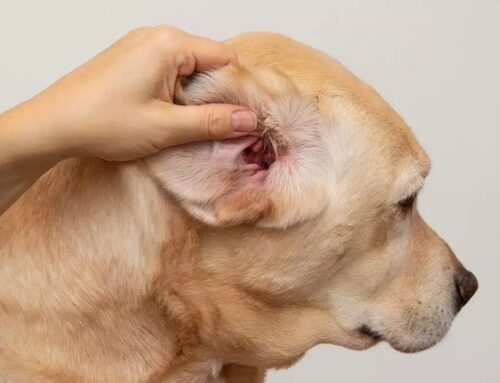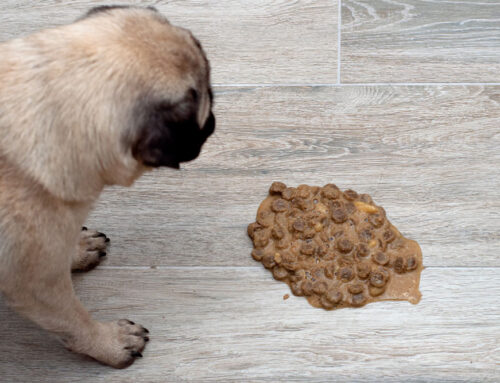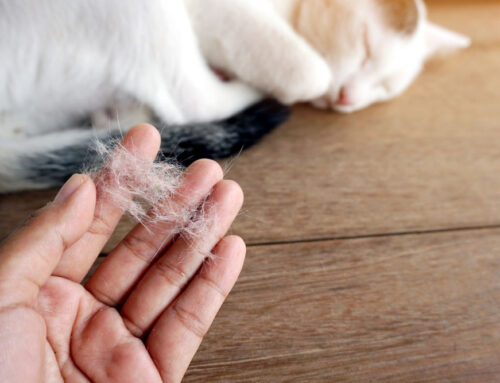Pet nutrition supports your furry friend’s health, vibrancy, and well-being. However, with the misleading pet nutrition information circulating online, you may have trouble distinguishing the truth behind common myths. Our WesVet Animal Hospital team debunks common myths and provides accurate information about pet nutrition.
Myth 1: Grain-free diets are healthier for pets
Truth: While grain-free diets are popular, they are not necessarily healthier for cats and dogs. Grains include valuable nutrients such as fiber, vitamins, and minerals. Most pets thrive on diets where healthy, whole grains are included in the ingredients. The idea behind the myth is that many pets have grain allergies, which is untrue. Food allergies comprise a mere 10% of pets’ allergens, and grain allergies are rare. Before switching your furry friend to a grain-free diet, consult our WesVet Animal Hospital veterinarian to determine whether such a diet is suitable for your furry friend.
Myth 2: Cats can benefit from a vegan diet
Truth: Cats are obligate carnivores, requiring certain nutrients found only in animal products. A vegan diet lacks essential nutrients, such as taurine, arachidonic acid, and vitamin B12, which are critical for a cat’s health. Feeding a cat a vegan diet can lead to severe health issues, including heart problems and blindness.
Myth 3: Table scraps are safe for pets
Truth: Many foods people enjoy are harmful and may be toxic to pets. Foods, such as chocolate, onions, garlic, grapes, and certain artificial sweeteners labeled as xylitol or birch sugar, can cause severe health issues. Additionally, high-fat foods can cause your furry friend to develop pancreatitis and obesity. While the occasional bit of tuna or a piece of cheese can be a reward, stick to feeding your furry pal pet-specific foods.
Myth 4: Raw diets for pets are natural and healthy
Truth: Raw diets have their proponents but also pose health risks, including bacterial contamination and an unbalanced nutrient profile. Raw meat can harbor harmful bacteria, such as salmonella and E. coli, posing risks to pets’ and people’s health. Moreover, preparing a balanced, raw diet requires careful planning and consideration. Discuss your ideas with our veterinarian before feeding your furry friend a strict, raw diet.
Myth 5: By-products in pet food are unhealthy
Truth: Many pet owners believe by-products in pet food are unhealthy because they seem unpalatable. However, your four-legged friend has less discerning taste buds than you. By-products are simply organ meats and other animal parts that are nutritious and safe for pets to consume. These by-products can provide valuable nutrients not found in muscle meat and should not be dismissed as low-quality ingredients.
Myth 6: Dry food is better for pet dental health
Truth: While some believe that dry food helps clean a pet’s teeth, they are insufficient for maintaining oral health. While dry food’s texture may provide minimal abrasive action, it does not replace regular dental care such as toothbrushing and professional cleanings. Dental treats and toys specifically designed to promote oral health are beneficial. In addition, you need to establish your pet’s oral hygiene regimen at home and schedule routine veterinary dental exams and professional cleanings to maintain your furry pal’s pearly whites.
Myth 7: All-natural or organic pet foods are superior

Truth: The terms “natural,” “whole,” and “organic” are marketing jargon that does not indicate that a product is superior. Pet food quality, including the term “organic,” is loosely regulated, although the Food and Drug Administration (FDA) offers guidelines on what constitutes organic. Additionally, food labeled as being natural or organic must meet the same nutritional standards as other pet foods. The most important factor is the nutritional content and whether the food meets your pet’s needs.
Ensure your pet has a nutritious diet
Like you, your pet requires a balanced diet that provides all essential nutrients in the correct proportions. This includes proteins, fats, carbohydrates, vitamins, and minerals. A diet tailored to your pet’s life stage, size, and health status significantly improves their overall wellness and longevity. Our WesVet Animal Hospital team can provide guidance based on your pet’s specific health needs, recommend an appropriate diet, and help you navigate through the myriad pet food options available.
By recognizing the truth behind pet nutrition myths, you can make informed decisions that promote your pet’s optimal health and happiness. Schedule a nutritional consultation with our WesVet Animal Hospital team so we can ensure your furry pal is eating a diet that supports their overall health and well-being.






Leave A Comment